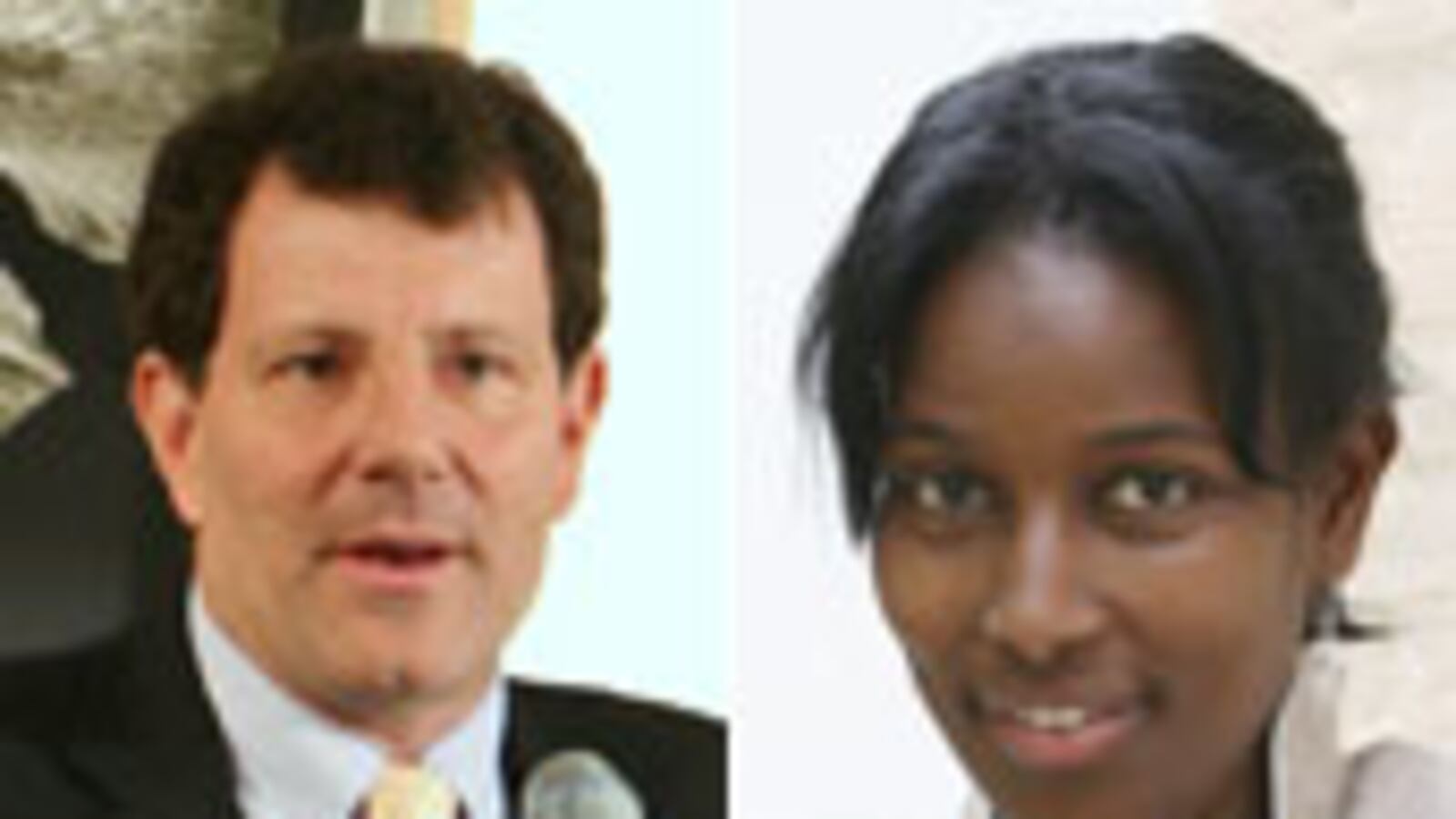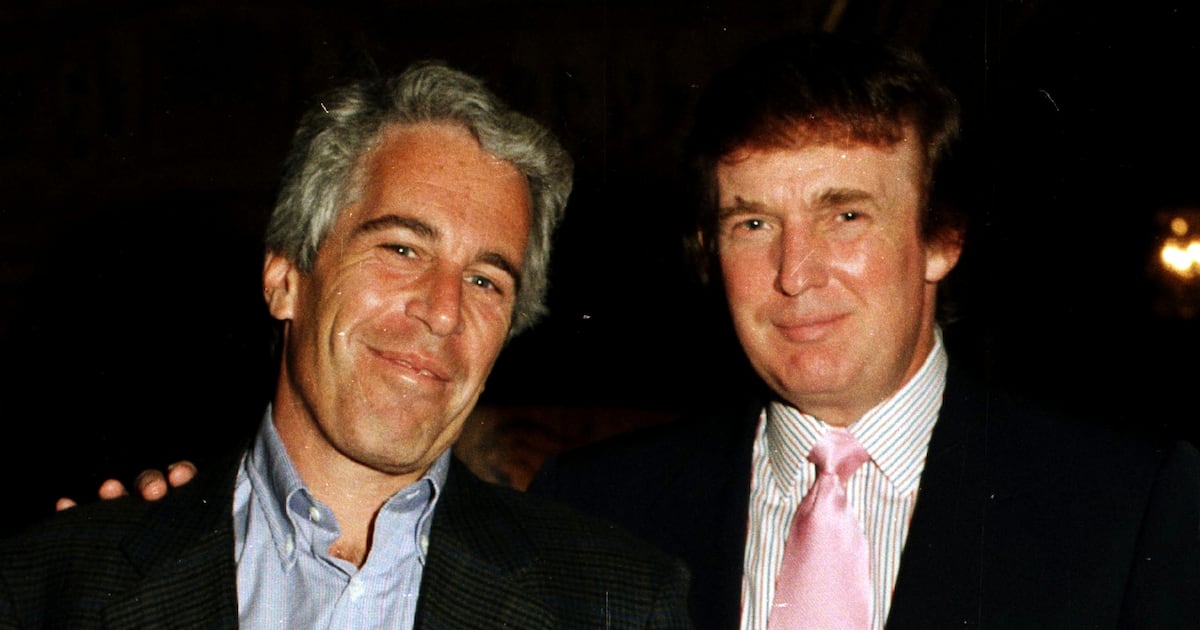
The bravest woman I know—and I know plenty, including Margaret Thatcher—is the Somalian-born writer and former Dutch politician Ayaan Hirsi Ali, who is presently under a fatwa sentence of death for her apostasy from the Muslim faith. When the Dutch filmmaker Theo van Gogh was shot eight times in 2004, a paper stuck into his corpse with a knife stated that Hirsi Ali would be next. While that would push most of us into hiding for the rest of our days—including me, I’m perfectly ready to admit—Hirsi Ali has resolutely continued to make public appearances promoting the cause of female liberation in the Muslim world.
Women’s liberation is something one might also have expected The New York Times to laud and support, yet the review there of Hirsi Ali’s latest book, Nomad: A Personal Journey Through the Clash of Civilizations, by op-ed columnist Nicholas D. Kristof, was instead–unforgivably in my view—entitled “The Gadfly," and subtitled, “Ayaan Hirsi Ali’s second memoir is as provocative as her first.”
By effectively blaming the murderous fatwa on Hirsi Ali herself, rather than on the would-be killers who proclaimed it, Kristof effectively sneers at the concept of freedom of speech.
The word “provocative” is often a term of approbation; here it is clearly intended pejoratively. The only people who could possibly be “provoked” by Nomad are Islamic fundamentalists who abuse women and beat children; much of the book is a passionate denunciation of the way violence is routinely used against children in the Muslim world. Of course, equally provoked are ultra-liberal Western commentators who regard any criticism of Islamic practices whatsoever, especially those specifically sanctioned by the Koran, as “provocative” and thus somehow illegitimate.
Thus when one of the high priests of American liberalism, Kristof, came to review Nomad in the Times, he was never going to be a cheerleader. “Since Hirsi Ali denounces Islam with a ferocity that I find strident,” he writes, “potentially feeding religious bigotry, I expected to dislike this book. It did leave me uncomfortable and exasperated in places. But I also enjoyed it.” This last sentence simply cannot be true, considering the viciousness of the rest of the review. It is merely an attempt to seem objective.
If one is looking for genuine stridency, don’t bother looking in Hirsi Ali’s calm, fact-based, even good-natured treatise about how changing Muslim education is the best way to defuse extremism, her criticisms of the savage beating of children, or her moving accounts of her family life before she somehow found the self-confidence to escape a corrosive and abusive world of pain, including a clitoridectomy imposed upon Ali at the age of 5 and finally an arranged marriage.
• Ayaan Hirsi Ali on the Injustice of Female Genital Mutilation• Tunku Varadarajan Reviews Hirsi Ali's NomadNo, for true stridency one should instead read Kristof’s almost unhinged response to the book, in which along the disgraceful and untrue accusation of “feeding religious bigotry,” he states that Hirsi Ali “is working on antagonizing even more people in yet another memoir” (she’s written two), “she never quite outgrew her rebellious teenager phase” (she was an elected MP in Holland), “she is at her worst when excoriating a variegated faith” (she does not), and accusing her of “overheated and overstated rhetoric.”
If one is looking for overheated and overstated rhetoric, consider Kristof’s assertion of modern Islam that the reason that it is “one of the fastest-growing religions in the world today” is not simply that Muslims statistically have more children than Christians and non-Orthodox Jews, but instead because of ‘the warm hospitality toward guests, including Christians and Jews” (tell that to the Christian and Jewish communities that have been expelled from all too many Middle Eastern countries over the past six decades), “charity for the poor” (easy enough in oil-rich plutocracies without social security), and "the sense of democratic unity as rich and poor pray shoulder to shoulder in the mosque” (but can’t vote shoulder to shoulder in the non-existent polling booths).
Truly stomach-churning is Kristof’s remark, “Perhaps Hirsi Ali’s family is dysfunctional because its members never learned to bite their tongues and just say to one another: ‘I love you.’” That might be the New York shrink’s answer to every problem, but does it really help at the moment when, as in Hirsi Ali’s case, her father ordered her to marry a stranger? That is the reality for much of Somali Muslim womanhood today, and Kristof’s answer to that nightmare—which he would not for one moment contemplate allowing in the United States—is for everyone to have a nice big group hug and say they love each other.
As for the sustained beating of children, Kristof laughs off this vicious abuse by writing: “Yes, corporal punishment is common in madrassas, as it was in the rural Oregon schools where I grew up … but they don’t turn children into terrorists.” Yet Hirsi Ali doesn’t argue anything so trite in Nomad, all she does is state that beatings coarsen children and accustom them to violence, which then spills over into society in a myriad of ways. The Middle East is not rural Oregon, as Mr. Kristof, who boasts of his wide travels in the region, must surely know.
Although of course Kristof did not write the headline “Gadfly” (his editors likely did), it is a fair summary of his review, and a foul libel on one of the bravest women of her time, who displays a quiet, personal, committed courage that Kristof shrugs off with the words: “She has managed to outrage more people—in some cases that they want to assassinate her—in more languages on more continents than almost any writer in the world today.”
By effectively blaming the murderous fatwa on Hirsi Ali herself, rather than on the would-be killers who proclaimed it and carried it out on Theo van Gogh, Kristof effectively sneers at the concept of freedom of speech. We therefore have the right to ask: Who’s the true hero and who’s the mere gadfly?
Historian Andrew Roberts' latest book, Masters and Commanders, was published in the U.K. in September. His previous books include Napoleon and Wellington, Hitler and Churchill, and A History of the English-Speaking Peoples Since 1900. Roberts is a fellow of the Royal Society of Literature and the Royal Society of Arts.






